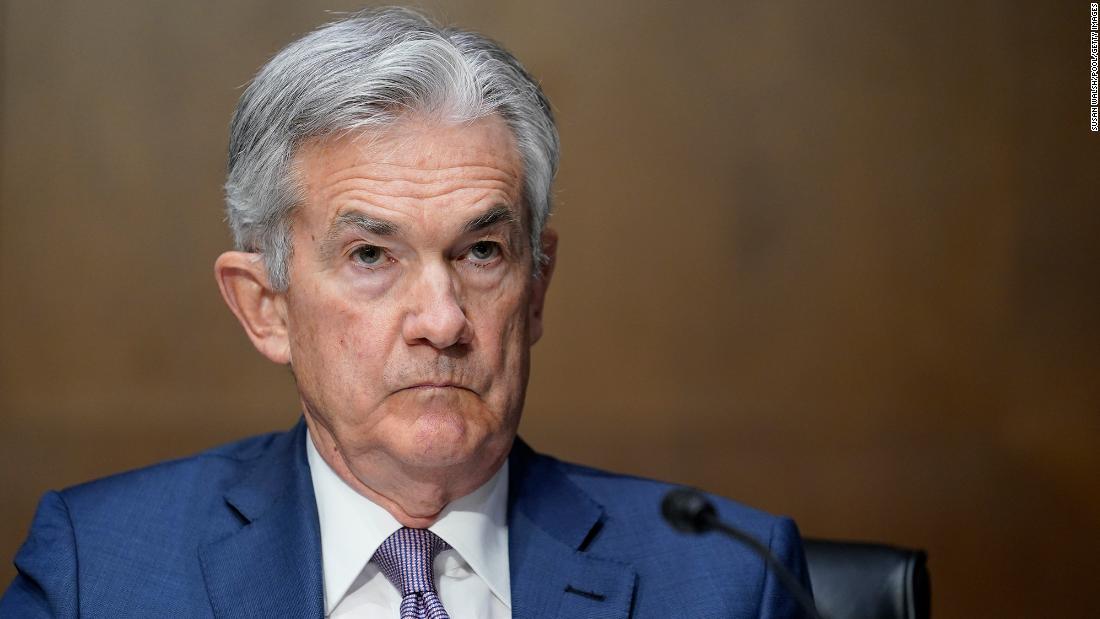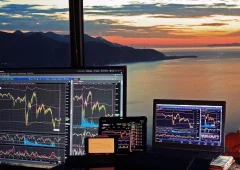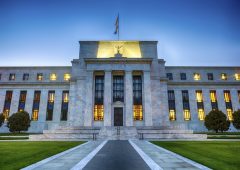BREAKING: FED Chair Gives His Most Anticipated Interview on Interest Rates
15.07.2024 19:51 2 min. read Alexander Stefanov
Federal Reserve chair Jerome Powell is currently giving his most anticipated interview at the Economic Club in Washington with David Rubenstein.
Rubenstein is a renowned investor and philanthropist, co-founder of Carlyle Board, where Powell was a partner between 1997 and 2005.
Powel said that this year the Fed expected the economy to gradually slow down as well as the labor market to cool off after being overheated for quite some time. And he said this is actually happening.
Inflation data in Q1 saw no progress, whereas in Q2 there were 3 better readings, which has given better confidence, needed for the potential rate cuts.
He stated that the 1.5% economic growth in H1 is a good sign that potentially their policy is on the right track.
As inflation nears its 2% target and concerns grow over sustained job market strength under the Fed’s economic policies, the central bank faces decisions in its final days.
It may signal impending rate cuts or justify maintaining current monetary policies despite recent economic data suggesting otherwise.
June’s weak inflation figures have led investors to speculate a greater than 90% chance of a rate cut in September. Powell previously indicated that favorable inflation trends would influence future rate adjustments but refrained from setting a timeline during recent Congressional hearings. During the interview, Fed’s chair answered that he won’t give any signals.
He was asked whether their decisions will be affected by this year’s presidential election, to which he answered that they don’t have a political filter and they are not influenced by this.
Powell added, that if you wait inflation rate to reach 2% you will have waited for too long – in other words they won”t wait for the inflation to go all the way down to 2% to make a decision to cut rates.
He also said that if they see an unexpected weakening in the labor market, this will be required to react.
The Fed convenes July 30-31, adhering to rules preventing policymakers from discussing monetary policy starting July 20 until after the meeting concludes.
-
1
U.S. Announces Sweeping New Tariffs on 30+ Countries
12.07.2025 16:30 2 min. read -
2
US Inflation Heats Up in June, Fueling Uncertainty Around Fed Cuts
15.07.2025 16:15 2 min. read -
3
Key U.S. Economic Events to Watch Next Week
06.07.2025 19:00 2 min. read -
4
Gold Beats U.S. Stock Market Over 25 Years, Even With Dividends Included
13.07.2025 15:00 1 min. read
US Inflation Heats Up in June, Fueling Uncertainty Around Fed Cuts
U.S. inflation accelerated in June, dealing a potential setback to expectations of imminent Federal Reserve rate cuts.
Gold Beats U.S. Stock Market Over 25 Years, Even With Dividends Included
In a surprising long-term performance shift, gold has officially outpaced the U.S. stock market over the past 25 years—dividends included.
U.S. Announces Sweeping New Tariffs on 30+ Countries
The United States has rolled out a broad set of new import tariffs this week, targeting over 30 countries and economic blocs in a sharp escalation of its trade protection measures, according to list from WatcherGuru.
Key U.S. Economic Events to Watch Next Week
After a week of record-setting gains in U.S. markets, investors are shifting focus to a quieter yet crucial stretch of macroeconomic developments.
-
1
U.S. Announces Sweeping New Tariffs on 30+ Countries
12.07.2025 16:30 2 min. read -
2
US Inflation Heats Up in June, Fueling Uncertainty Around Fed Cuts
15.07.2025 16:15 2 min. read -
3
Key U.S. Economic Events to Watch Next Week
06.07.2025 19:00 2 min. read -
4
Gold Beats U.S. Stock Market Over 25 Years, Even With Dividends Included
13.07.2025 15:00 1 min. read



